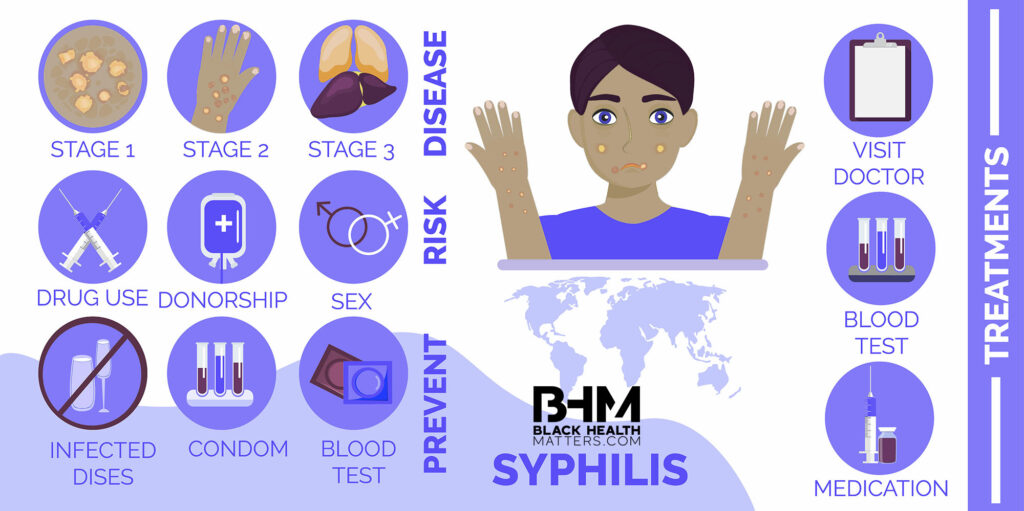The relationship between syphilis and the Black community in the United States is marked by a complex and troubling history. The Tuskegee Syphilis Study, which was conducted between 1932 and 1972, is a poignant reminder of unethical medical practices that targeted African-American men and how far things have come. While companies have taken steps to correct this shameful error, this historical event continues to shape perceptions and trust within the community toward medical institutions.

The Tuskegee Syphilis Experiment
Background
The Tuskegee Syphilis Experiment, conducted by the U.S. Public Health Service, began in 1932 in Macon County, Alabama. The study involved 600 Black men, 399 of whom were diagnosed with syphilis, and aimed to observe the natural progression of the disease without treatment.
Participants were misled about the nature of the study, believing they were receiving treatment for “bad blood.” They were given free medical examinations, meals, and burial insurance, but were not provided with adequate treatment for syphilis, even after penicillin became the recommended therapy in 1947.
The unethical practices of the study were exposed to the public in 1972 by a whistleblower, leading to widespread condemnation and outrage. The revelation of the Tuskegee study led to new regulations and safeguards to protect human subjects in biomedical research.
Impact on the Black Community
Medical Distrust
The Tuskegee Syphilis Experiment instilled a deep sense of mistrust in medical institutions within the Black community. This distrust has had lasting implications, contributing to health disparities, reluctance to participate in clinical trials, and skepticism toward medical professionals.
Lower Life Expectancy
Recent research has also linked the Tuskegee study to a decline in life expectancy among Black men. The enduring impact of the study on healthcare utilization and preventative care practices is believed to have contributed to this alarming trend.
Contemporary Relevance
Vaccine Hesitancy
The legacy of the Tuskegee study continues to be relevant in current public health discourse, particularly in discussions about vaccine hesitancy. While it is essential not to oversimplify or generalize the reasons for vaccine skepticism, the historical trauma inflicted by the Tuskegee experiment remains a relevant context.
Community Engagement
To address the lingering effects of the Tuskegee study, efforts have been made to engage the community through education, dialogue, and collaboration. Pilot projects and community-driven research initiatives strive to rebuild trust and promote understanding.
The Tuskegee Syphilis Experiment represents a dark chapter in American medical history that continues to influence the relationship between the Black community and healthcare institutions. It underscores the importance of ethical considerations, transparency, and community engagement in medical research and healthcare practices. Efforts must continue to rebuild trust, promote equitable access to healthcare, and ensure that the lessons learned from this tragic episode guide future medical research and healthcare delivery. The healing process requires acknowledgment of the past, education, and collaborative partnerships that empower the community and foster mutual respect.








